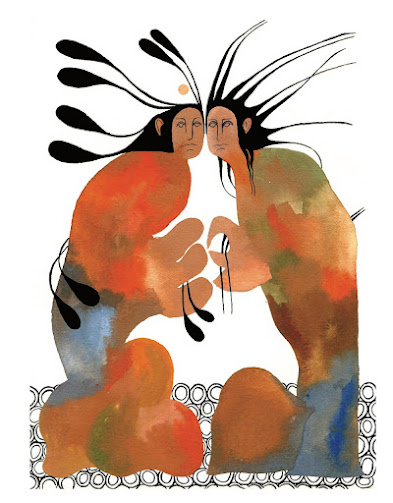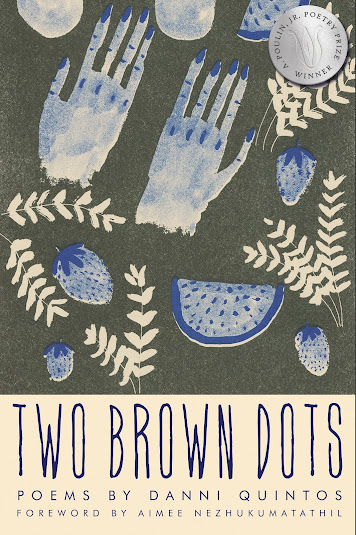1 - How did your first book change your life? How does your most recent work compare to your previous? How does it feel different?
My first novel has only just come out. I don’t know how people are going to feel about it and I don’t know how their reactions to it (presuming there are any reactions at all, that anyone reads it) will make me feel. Positive or negative. Either way I don’t imagine it’ll do me any favours but it would be nice to know if it succeeded in being, for anyone, something interesting and possibly beautiful. What I can say is that I had to learn how to write the novel and I think that the act of producing something, developing an intuition towards its conclusion, could qualify as transformative.
The novel I’m finishing now is in many ways a reaction to The Autodidacts. It’s very singularly focused and the structure of it isn’t part of the narrative. I wanted to see if I could work with plot in an interesting way and I thought the only plot driven style of work that I’ve ever really enjoyed is noir. But it’s not really noir. It is also about biological machines and posthumanism etc. Anyway, I’m terrible at describing my work and I want to pretend that’s a virtue?
2 - How did you come to fiction first, as opposed to, say, poetry or non-fiction?
I can’t write non-fiction because I don’t want to be near anything interesting when I write. I want to disappear when I write.
I’m not very good at poetry. I can only do it sincerely. That sounds bad but I hope you understand what I mean.
A novel gives you a lot of space to cut away at.
3 - How long does it take to start any particular writing project? Does your writing initially come quickly, or is it a slow process? Do first drafts appear looking close to their final shape, or does your work come out of copious notes?
I have a quite infuriating process. I usually have an image or an idea of the affect I’m interested in and then I write to think about what it is composed of and then I continue to write outwards from that. I usually know how I want it to end. I think about structure a lot but the events tied to that structure have to be intuitive so it’s often a complete car crash. I rewrite continually but the rhythms of the work seem to be there at the beginning. I’ve written complete, or almost complete versions, of both novels and then had to completely trash them several times over. Like trash them. The kind of complete toilet flushing waste that makes you question if you can actually do anything interesting or understandable. And I write S-L-O-W. Writer’s have an insane capacity for belief, that sense of faith is the main virtue of the practice. Self belief through excoriation. I don’t know how long I’ve spent trying to get something right in a sentence. It doesn’t help that my grammar is appalling. Still, I want my sentences to be under an amount of pressure that borders upon the unbearable.
4 - Where does a work of prose usually begin for you? Are you an author of short pieces that end up combining into a larger project, or are you working on a "book" from the very beginning?
Always a book. The rest as above.
5 - Are public readings part of or counter to your creative process? Are you the sort of writer who enjoys doing readings?
I’ve never really been part of any community or published enough to be invited to do many readings. I think I quite like them but at the same time it seems like it should be a special occasion. I can’t be giving readings on the regular. Too social.
6 - Do you have any theoretical concerns behind your writing? What kinds of questions are you trying to answer with your work? What do you even think the current questions are?
I think every writer I like has their themes. I think I know what mine are. What links my work is a kind of obsession with trying to detail the experience of thought or the relation between language and what it restrains.
7 – What do you see the current role of the writer being in larger culture? Do they even have one? What do you think the role of the writer should be?
I don’t know that any position I take on this is satisfactory enough to express because I think it's impossible to think about this in the singular. That the impulse to individualise is so prominent in our language is something that I’ve been thinking about a lot at the moment. How do we define a multiple? And of course the answer is you don’t have to, you only have to open yourself up to connection to it.
This isn’t a cop out, I think all creative acts have a duty. The role of the writer, as I see it, is to show a fidelity to whatever is driving creation.
8 - Do you find the process of working with an outside editor difficult or essential (or both)?
I think you have to get your writing up to scratch. Take it as far as you can go and then submit it. But having someone question what you’ve done and spot your errors and tells is important.
(BTW It took me a long time to learn how to redraft. You have to redraft.)
9 - What is the best piece of advice you've heard (not necessarily given to you directly)?
I remember on Dennis Cooper’s blog there was a day on writing tips and the one that stood out to me was to consider writing as a drug. What kind of experience, and what variable for experience, is your work creating is how I interpreted it. It helped me with being able to think of a reader, because I sincerely struggle/d with that.
10 - What kind of writing routine do you tend to keep, or do you even have one? How does a typical day (for you) begin?
I wake up at 6. If our toddler wakes up before 7 I make him breakfast as I drink coffee. At 7 I walk forty five minutes to the school I work in. It’s a good walk. I usually have work until 4 and then I walk home again. I feed our toddler and, depending on what day of the week it is, I wash him and put him to bed. Then we eat and have a chance to catch up. On Tuesdays my wife usually visits a friend and I write. Then I usually have one other two-three hour session somewhere in the week.
11 - When your writing gets stalled, where do you turn or return for (for lack of a better word) inspiration?
I just stare at the computer and rewrite sentences until something or nothing happens. Then I tell myself it’s a case of creating the opportunity, just being there, that will lend itself to an answer.
12 - What fragrance reminds you of home?
I have a very poor sense of smell.
13 - David W. McFadden once said that books come from books, but are there any other forms that influence your work, whether nature, music, science or visual art?
Film evokes the inexplicable and is able to situate the reader in an ambiguous state much more effectively than a lot of literature does.
14 - What other writers or writings are important for your work, or simply your life outside of your work?
I have two lists here. One is something I want to keep private and the other I don’t feel like organising. But if pressed: Agota Kristof, Dennis Cooper, Alain Robbe Grillet, Yukio Mishima, Djuna Barnes, Kathy Acker, DH Lawrence, Cormac Mccarthy, Faulkner, Ballard, Gaddis.
15 - What would you like to do that you haven't yet done?
I don’t know, finish the next book and then know what to do with it.
16 - If you could pick any other occupation to attempt, what would it be? Or, alternately, what do you think you would have ended up doing had you not been a writer?
I think writer, as an identity, is best kept secret. You have to earn enough money to live and then you have to sacrifice something else to write. Unless you’re lucky. If you’re not lucky you have to be careful what you choose to sacrifice or you may just become unbearable. You risk that any time you talk or think about your writing. Being a writer is just choosing to spend time creating something that may only have value to you but which you have to believe communicates something or has any effect on the world.
I think its unhealthy but true that I can’t imagine not writing.
17 - What made you write, as opposed to doing something else?
At a practical level, it’s the cheapest artform. It’d be amazing to work in film, sculpture, conceptual art but it’s the difference between football/soccer and tennis in terms of the equipment and space needed. Language is available and all you have to do is find a way to make it interesting. And writing is the closest thing to telepathy we have so how can it not be interesting?
Writing is also independent in a way that doesn’t rely on having a personality. People don’t really talk about personality any more. Which is a shame because maybe it offers a more charming way out of identity? Anyway, i digress. I want to be invisible to myself. That’s what The Autodidacts is doing.
18 - What was the last great book you read? What was the last great film?
Three books to cheat and in no specific order: The Employees, Olga Ravn. I wished, Dennis Cooper and Hurricane Season by Fernanda Melchor.
Last great film. I don’t know. I’m out of touch.
19 - What are you currently working on?
The final, I think, draft of my second novel ‘How I Killed The Universal Man’ and playing around with the beginnings of a third.




